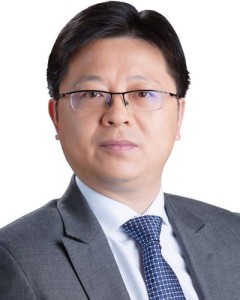Private wealth management (PWM) has in recent years become a trendy concept quite familiar to almost everyone. Few high-net-worth individuals have assets located solely in their home countries or have no plans for their overseas assets. With the implementation of the Common Reporting Standard (CRS) aimed at facilitating the exchange of tax information among countries, foreign elements are now indispensable factors to be considered in PWM. As such, what are the most common foreign elements in PWM?

Partner
Jingtian & Gongcheng
Foreign elements of the subject. PWM may cover many family members, and it is inevitable that some of them may have obtained or plan to take up permanent residency elsewhere, or have become citizens of other countries or settled there. So, it is necessary to focus on the changes in the tax status of such people due to changes of identities. Also, when drafting legal documents related to PWM, it is worth noting the influence
on validity of the agreement due to the laws of different jurisdictions.
In some situations, clients actively seek foreign residency when aiming to pursue PWM. Among the common circumstances are the following:
1. As most countries have restrictions on identity for specific assets or investments, some family members have to obtain nationality or permanent residency elsewhere in accordance with relevant regulations when allocating assets globally to overcome such restrictions;
2. Plan to get a foreign tax residency to avoid tax reasonably by holding assets under another name, or to completely change his/her tax status.

Counsel
Jingtian & Gongcheng
Foreign elements of assets. In order to diversify risks, as well as possess a variety of assets, high-net-worth individuals also have increasing demands for overseas investments as evident in the rising figure related to this. There is a wide range investment opportunities, including, but not limited to, financial assets, real estate projects, stakes in listed companies, equities in other companies, aeroplanes, yachts, artworks and intelligent properties. As there are divergent legal conditions and regulations in different countries or regions related to obtaining, transferring or damaging assets, it is necessary to consult professionals on issues to be aware of and the possible legal consequences.
Foreign elements of common tools. This article mainly introduces the following three common PWM tools:
1. Foreign-related testament. Testament, as the most basic PWM tool, allows people to dispose of all various properties at their own discretion without signing any sophisticated documents, setting complicated terms or completing tedious examination or registration. If the testator or the beneficiary has foreign identities, or the legacy is located outside mainland China, there are foreign elements in such testaments.
Although most countries acknowledge the effectiveness of the testament, they have different requirements for its establishment and the criteria of its effectiveness. Therefore, the effectiveness of the testament uder different laws shall be the first thing to consider when drawing up a foreign-related testament.
2. Overseas jumbo insurance policy. This is always seen as having some effect on asset preservation, debt avoidance, wealth management, legitimate avoidance of estate tax and estate inheritance. These factors make it one of the key tools of wealth inheritance and risk diversification for high-net-worth individuals.
Even though some domestic insurers have launched some large-value insurance products in recent years, overseas jumbo policies have more functions and tailor-made settings, such as easier access to policy loan financing. Also, the amounts that overseas jumbo insurance policies cover are usually higher than domestic ones and may reach tens of millions of dollars, which can satisfy better the needs of high-net-worth individuals.
3. Establish overseas trust. Rich foreign families establish trusts effectively to fulfil the inheritance of their wealth and businesses. These trusts attract the attention of the emerging high-net-value individuals in China. Unlike China, where family trust only refers to fund trust, in the UK, the US or other countries with developed trust industries, almost all kinds of properties may be put into the trust at the trustor’s will with more privacy (limited by the real estate registration system, real estate in China may not be put into foreign trust). So high-net-worth individuals prefer to establish trusts in countries or regions with relatively mature trust systems.
The foreign elements involved in establishing overseas trusts include not only the establishment location, but also the asset segregation, as well as the coordination and arrangement of assets in different jurisdictions. In the course of establishing a trust, the high-net-worth individuals usually incorporate offshore companies, through which they hold stakes in listed companies or domestic assets. If the domestic assets are restricted by admission qualification for foreign investors, they will control their domestic assets through variable interest entities (VIEs).
Foreign elements involved in dispute resolution. “Dispute resolution” here mainly refers to divorce and divorce-related litigations. Foreign identity and foreign location of real estate have great significance in determining the court jurisdiction and applicable laws for possible future litigation. Most countries adopt jus sanguinis or jus soli to determine if a court has the competent jurisdiction over litigations of divorce, marital property disputes, property preservation and otherwise; for real estate, most countries adopt exclusive jurisdiction. Therefore, when designing a PWM plan, it is necessary to consider the impact of such elements on possible disputes in the future.
Considering foreign elements and their influence are key to the PWM. Only then may the law firms provide clients with better legal services and provide the true PWM.
Wu Weiyi is a partner in the Shanghai office of Jingtian & Gongcheng. He can be contacted on +86 21 2613 6213, or by email at wu.weiyi@jingtian.com
Lu Shanjing is a counsel in the Shanghai office of Jingtian & Gongcheng. She can be contacted on +86 21 2613 6379, or by email at lu.shanjing@jingtian.com





















